46+ Sample Conference Proposals
-
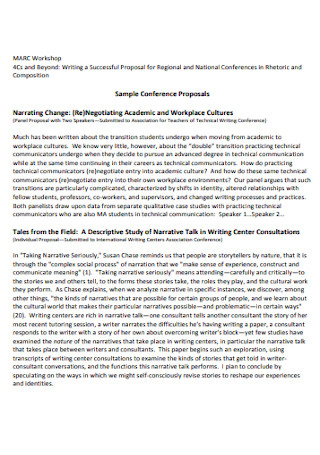
Sample Conference Proposals
download now -
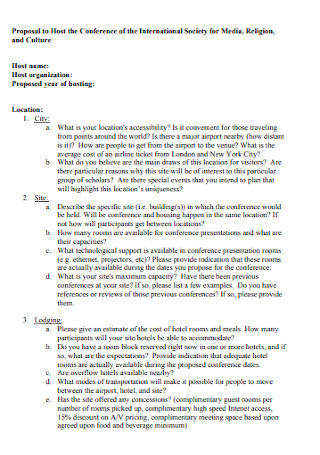
Media Conference Proposal Template
download now -
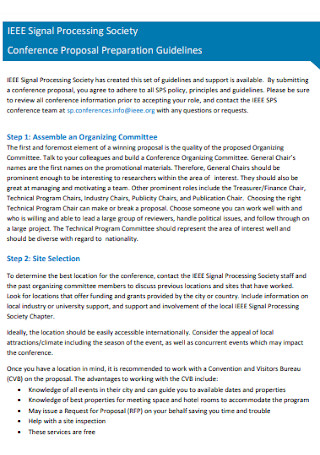
Conference Preparation Proposal Template
download now -
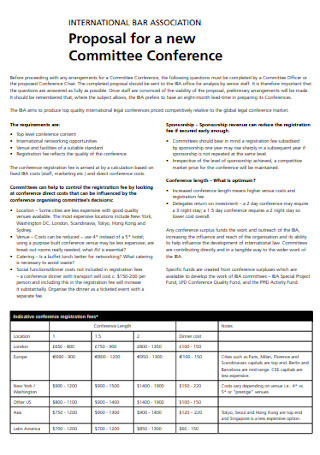
Committee Conference Proposal Template
download now -
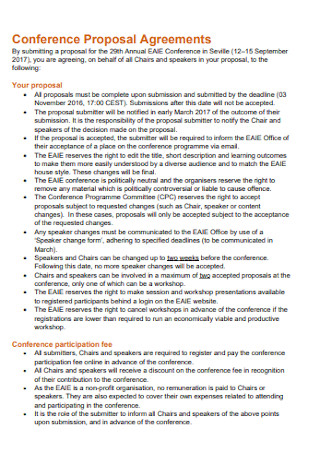
Conference Proposal Agreements Template
download now -
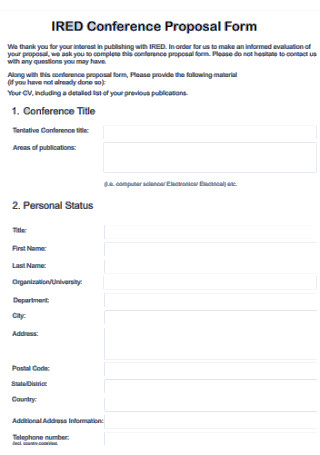
Conference Proposal Form
download now -
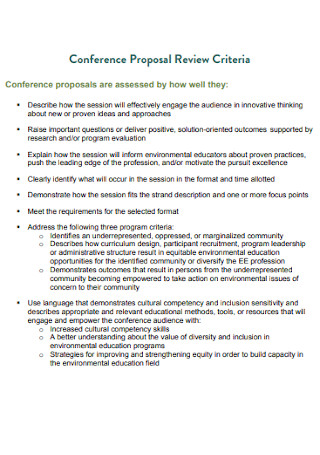
Conference Proposal Review Template
download now -
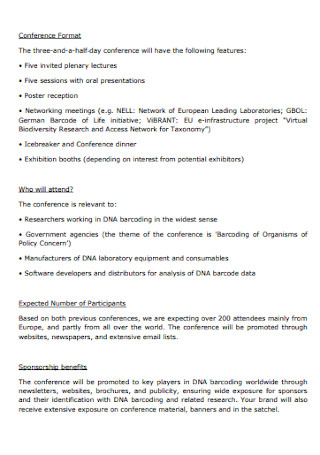
Conference Sponsorship Proposal
download now -
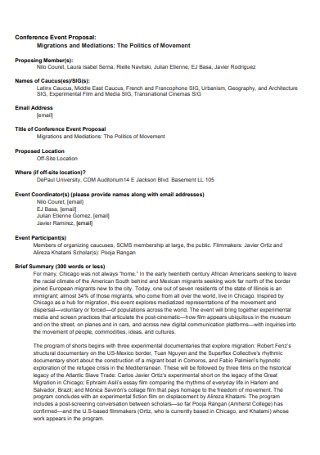
Conference Event Proposal Template
download now -
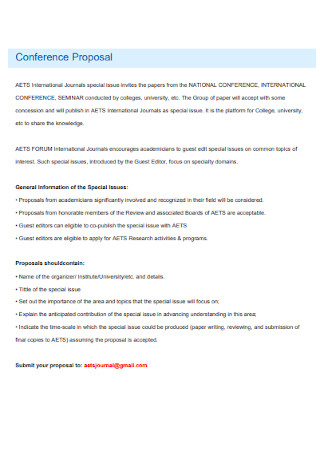
Conference Proposal Format
download now -
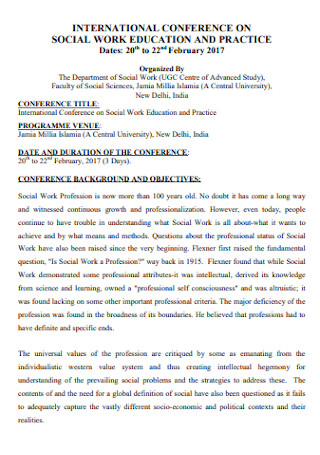
Education Conference Proposal
download now -
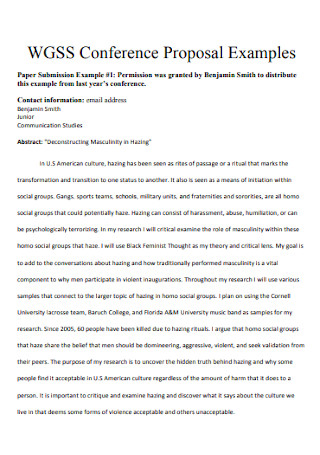
Sample Conference Proposal Examples
download now -
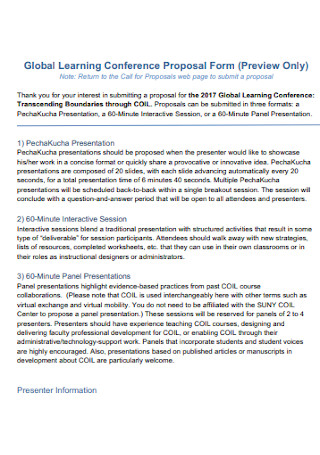
Learning Conference Proposal Form
download now -
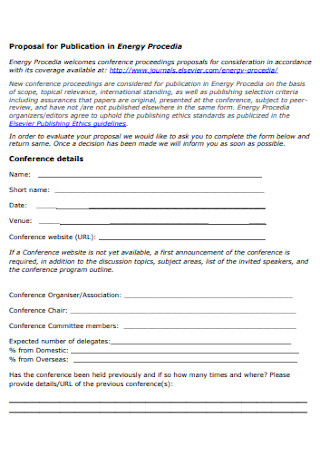
Proposal for Conference Publication Template
download now -
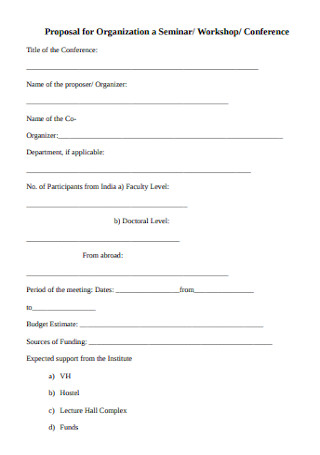
Proposal for Organization Conference
download now -
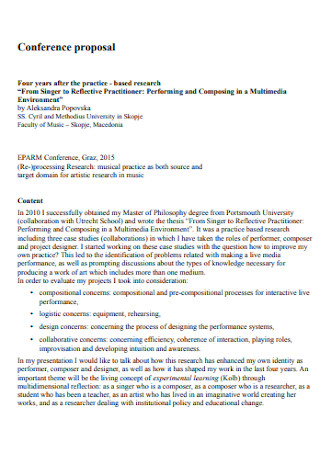
Basic Conference Proposal Template
download now -
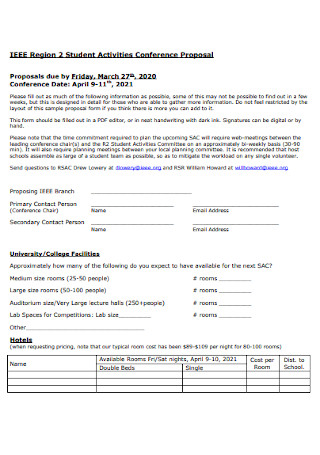
Student Activities Conference Proposal
download now -
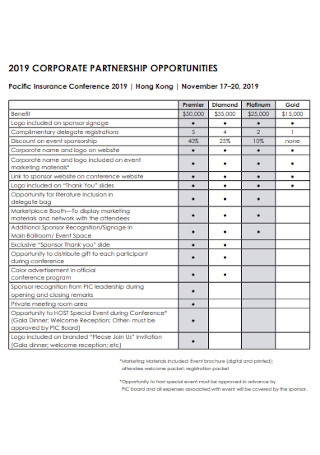
Corporate Partnership Conference Proposal
download now -
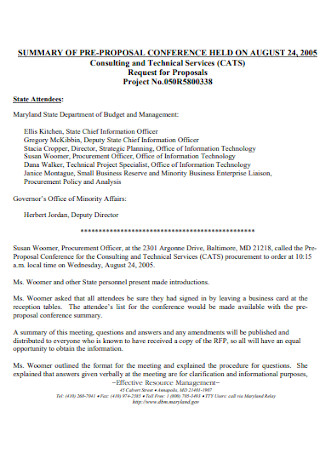
Consulting Conference Proposal
download now -
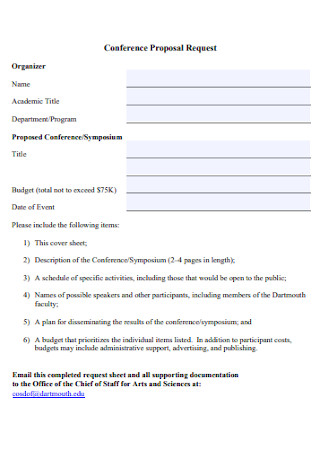
Conference Proposal Request Template
download now -
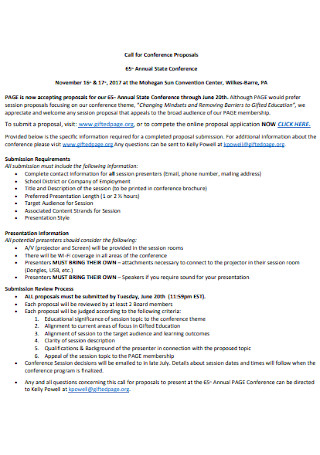
Call for Conference Proposals Template
download now -
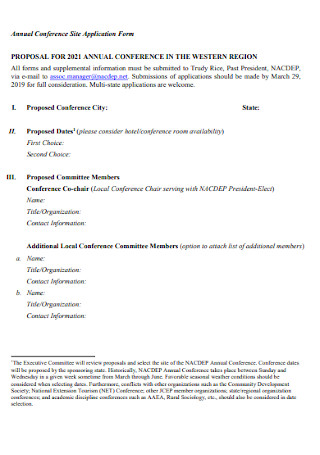
Annual Conference Site Application Form
download now -
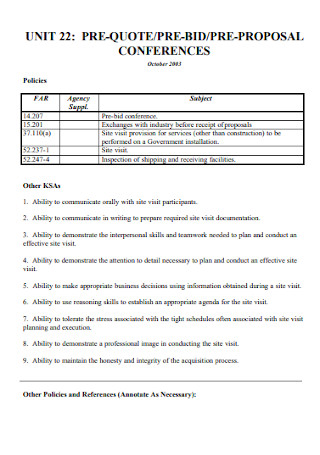
Pre-Bid Conference Proposal Template
download now -

Minutes of Pre?Proposal Conference
download now -
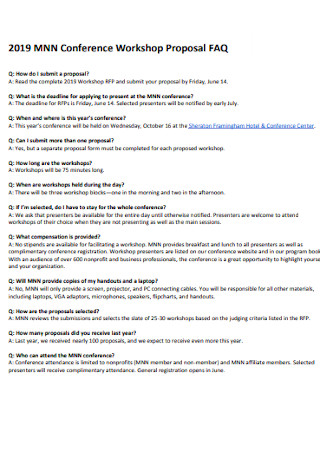
Conference Workshop Proposal
download now -
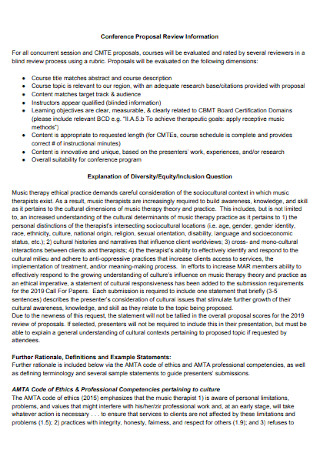
Conference Proposal Review Information
download now -
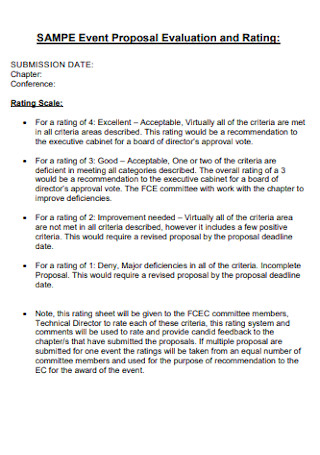
Event Conference Proposal
download now -
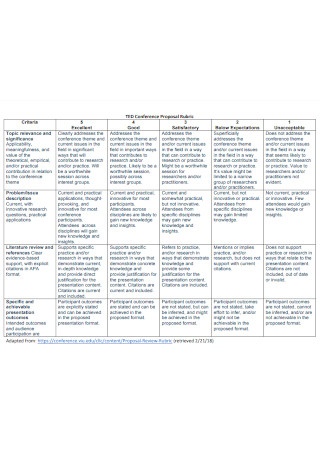
Conference Proposal Rubric Template
download now -
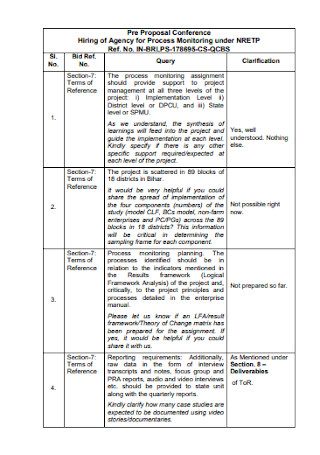
Hiring of Agency Conference Proposal
download now -
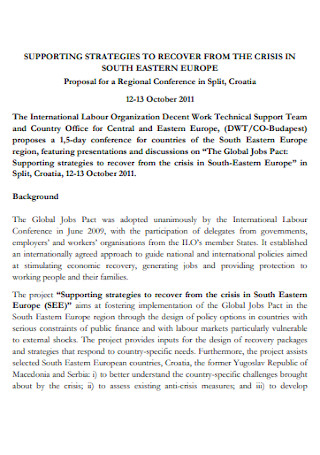
Proposal for a Regional Conference
download now -
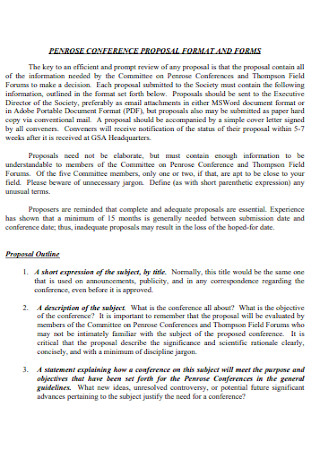
Conference Proposal Format and Forms
download now -
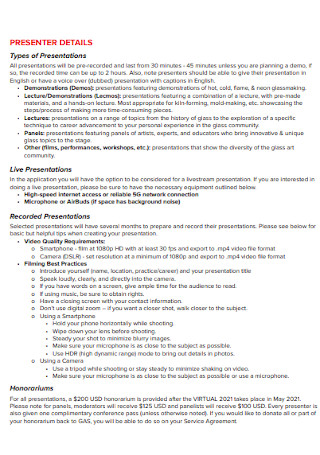
Conference Presentation Proposal
download now -
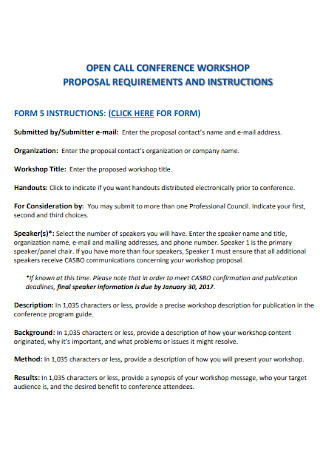
Conference Workshop Proposal Template
download now -
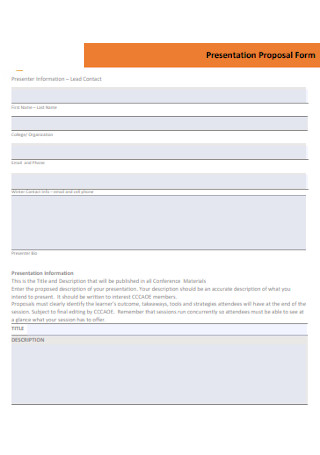
Presentation Proposal Form Template
download now -
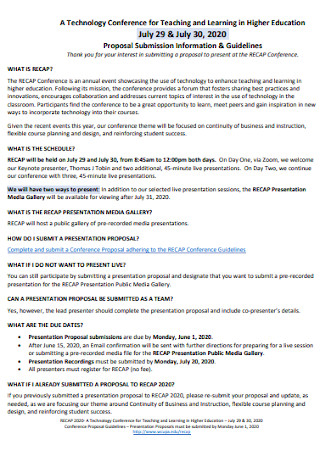
Teaching Conference Proposal
download now -
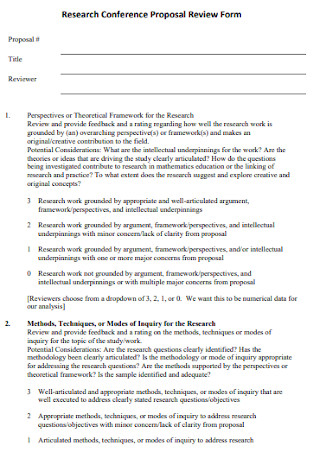
Conference Proposal Review Form
download now -
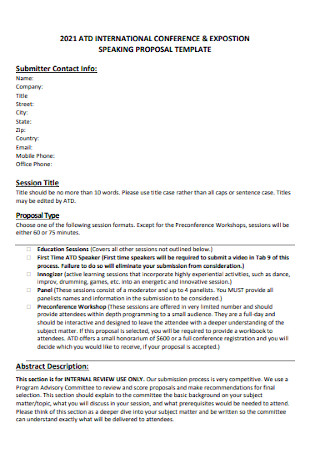
Conference Speaking Proposal Template
download now -
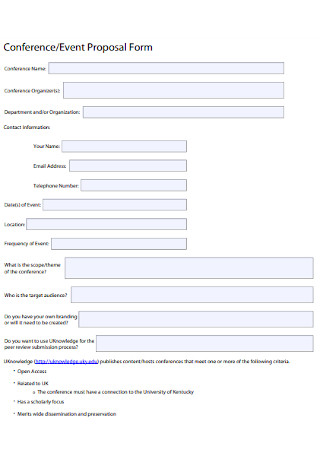
Conference and Event Proposal Form
download now -
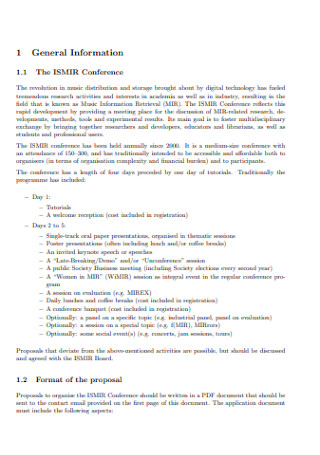
Organisation Conference Proposal
download now -
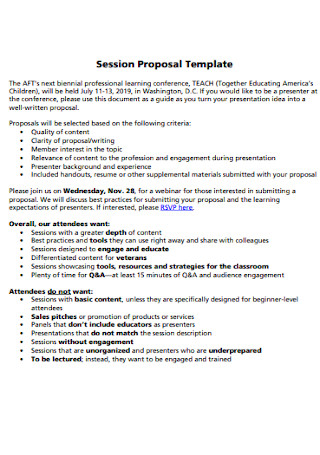
Conference Session Proposal Template
download now -
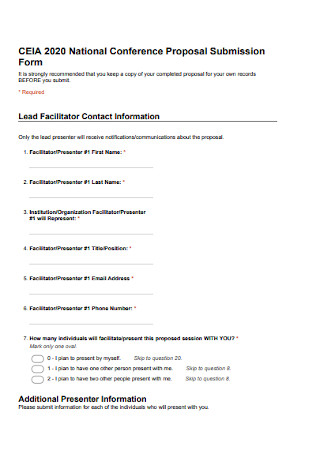
Conference Proposal Submission Form
download now -
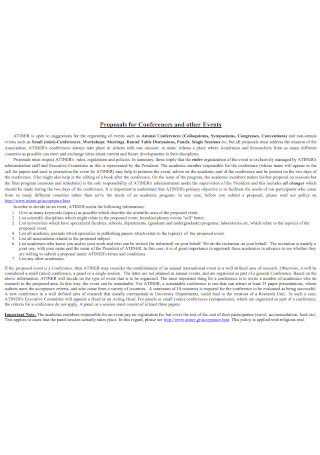
Proposals for Conferences and other Events
download now -
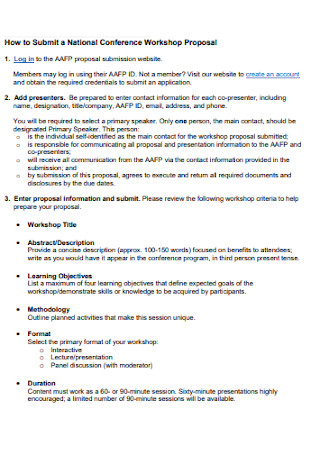
National Conference Workshop Proposal
download now -
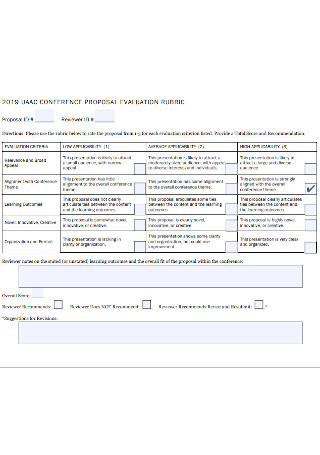
Conference Proposal Evaluation Template
download now -
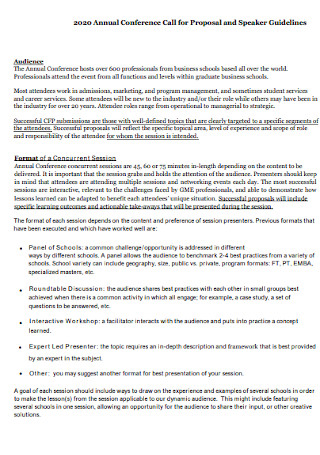
Annual Conference Call for Proposal
download now -
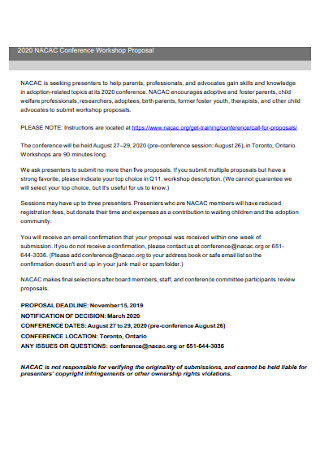
Sample Conference Workshop Proposal Template
download now -
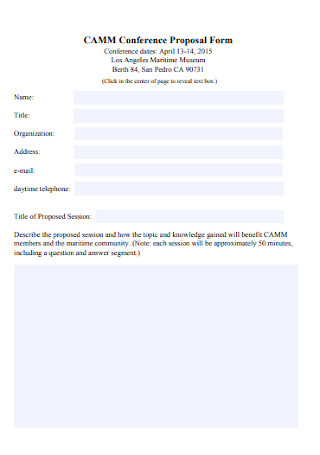
Conference Proposal Form Example
download now
FREE Conference Proposal s to Download
46+ Sample Conference Proposals
What Is a Conference Proposal?
Why Are Conference Proposals Important?
Key Elements of a Standard Conference Proposal
How to Create a Solid Conference Proposal
FAQs
What is CFP?
How long is a conference proposal?
Why should you present at a conference?
What Is a Conference Proposal?
A conference proposal is an official independent paper used to propose your ideas planned for a conference presentation. And a conference proposal’s main audience is whoever organizes the conference such as the review committee. Considering that conference proposals are a writing process, then there is freedom regarding what research statements and data you plan to share with your audience soon. Nonetheless, the proposal is still up for evaluation, meaning you can expect possible corrections and recommendations before it gets accepted.
According to Project Manager News, there are over 24 billion hours wasted for aimless meetings per year.
Also, Statista announced that in 2020, there were 195,000 conferences and meetings hosted in the UK.
Why Are Conference Proposals Important?
Rather than pitching ideas into a conference presentation right away, you might ask why there is a need to come up with a conference proposal first. There are numerous reasons that perfectly define how important a conference proposal is. And here are a few major highlights:
Conference Topic Reviews
Anyone can come up with an intriguing and excellent idea worth sharing with audiences. But how important or relevant is it to talk about for an academic or business conference? If the topic and conference proposal is bad per se, then there is no need to present it to the public. Also, did you know that around 24 billion hours are wasted on pointless meetings annually? You are only going to waste people’s time and productivity if you make them sit down for 30 minutes or more with pointless conference topics. Hence, make it make sense!
Constructive Criticisms from Experts
One special aspect of a conference proposal is that reviewers, experts, and conference organizers take time to read and analyze your document. Indeed, it gets nerve-racking when people of authority are expected to judge your work. But it is for the best since they will give you a constructive feedback report if your conference proposal is dismal or ready to be presented. Thus, a conference proposal is vital as it shows how much you really know about your topic and if the data you present is worth it.
Preparation for a Smooth Conference Presentation
In a business proposal, ideas and terms are assessed to ensure that establishing a business leads to positive and successful results afterward. The same can be said about the conference proposal where you are guaranteed to be ready for a successful conference presentation in the aftermath. So rather than going pronto for a conference presentation and being unprepared, you can depend on the conference proposal’s result first for a smooth process during the actual presentation later.
Conferences Happen Every Year
The concept of a conference itself is important because it can happen to any organization every year. From school to work purposes, conferences occur every once in a while. In fact, Statista’s 2020 research survey alone confirmed that there were approximately 195,000 conferences and meetings hosted in the UK. Clearly, conferences are valuable which proves why conference presentations must be exemplary, relevant, and well-prepared rather than talking about aimless information. Thanks to conference proposals, the actual presentations are guaranteed to be valuable later on.
Key Elements of a Standard Conference Proposal
What makes up a basic conference proposal? In every organization, the conference reviewers or committee have their standards on what to expect in the document. But generally, conference proposals contain the following main elements:
How to Create a Solid Conference Proposal
Now that you have been introduced to a conference proposal’s definition, importance, and key elements, your only concern now is how to write a conference proposal. And you can surely accomplish this using these useful and essential steps:
-
Step 1: Get to Know the Audience and Selection Criteria
Always know your audience before writing the conference proposal itself. Effective audience analysis can help you understand who your target audience is. Not only will you consider the conference reviewers but also the audience for your actual conference presentation after. In fact, any public speaker should mind the audience to know what intrigues them, what catches their attention easily, or even what jokes or innuendos they can relate to. Also, check the reviewer’s selection criteria next. If you can’t meet the conference reviewer’s standards, then there is a big chance for your proposal to be rejected.
-
Step 2: Write Every Single Idea to Present in a Draft
Although this step sounds informal, it is actually helpful to create a draft mainly to jot down all the ideas you have for the conference proposal and presentation. Consider the draft as your notes section because you need not include all of them in the final conference proposal. But, you need to break down your details by only choosing what is necessary for the proposal. You can even use bullet points to highlight the main topic points for your document.
-
Step 3: Use a Conference Proposal Sample and Fill Your Content
Be sure to download a sample conference proposal template and you can select from over 46+ examples in this post. Your chosen template is where you insert the main points from your draft until you slowly fill your conference proposal’s content. Also, you may opt for other related templates according to purpose besides a free conference proposal template. Options include an academic conference proposal, event proposal letter, sponsorship proposal, workshop proposal form, and a sample abstract for conference proposal.
-
Step 4: Stay Focused and Organized
Whether your topic involves a business communication strategy, a worldwide stigma, or an event management issue, make sure you stay focused on your subject. Also, do not assume that conference proposals are just an executive summary of your actual conference presentation. With a word limit, it is easy to fall prey to explaining the importance of a topic. But you should also include what to learn and the main content from it. At the same time, don’t write in too many directions as it will only confuse people. Keep it organized and coherent.
-
Step 5: Observe Your Audience Engagement
Nobody wants boring conferences so you have to consider the engagement of your audience. So what is your strategy in ensuring audience participation does not die out from your presentation? A tip is to be smart with your communication plan to connect with the audience thoughtfully. Oftentimes, simple English is enough as long as you can make them understand your point promptly. But during times where live engagement is not allowed in a conference, you should adjust well to it too.
-
Step 6: You Can’t Go Wrong with Proofreading
Of course, you would want your final conference proposal to be error-free and polished to appeal to the reviewers. So conduct an assessment and proofreading to go over your work and edit possible mistakes. Misspelling and grammatical errors should be fixed. And an inaccurate set of data is even much worse. So as much as possible, perfect your work until it is ready for submission.
FAQs
What is CFP?
CFP stands for call for proposals aka conference announcements. And the CFP contains the official conference theme, conference presentation guidelines, abstract and proposal requirements, and submission deadlines.
How long is a conference proposal?
A conference proposal normally contains 400–500 words only. But it must be concise, relevant, and clear.
Why should you present at a conference?
Presenting at conferences welcomes numerous advantages such as networking, sharing helpful information with others, developing your communication skills, advancing your scholarship, polishing your resume, and even traveling.
Always bear in mind that despite the efforts spent on making a well-documented and thorough conference proposal, the conference reviewers are always hoping for the best conferences possible. Thus, the time and effort spent in building the proposal will really pay off once they see how impressive your conference topic is, why it is relevant for audiences nowadays, and how much you know your details very well. So right from the conference proposal-making process, wow your reviewers that you really master your work until they can easily give you the go signal.
